Butterfly's Way: Voices From the Haitian Dyaspora in the United States
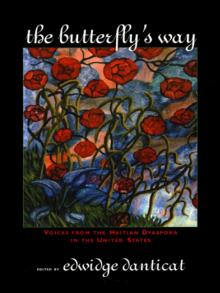

Author: Edwidge Danticat
Category: Literature
Published: 2001
Series:
View: 276
Read OnlineIn four sections—Childhood, Migration, First Generation, and Return—the contributors to this anthology write powerfully, often hauntingly, of their lives in Haiti and the United States. Jean-Robert Cadet's description of his Haitian childhood as a restavec—a child slave—in Port-au-Prince contrasts with Dany Laferriere's account of a ten-year-old boy and his beloved grandmother in Petit-Gove. We read of Marie Helene Laforest's realization that while she was white in Haiti, in the United States she is black. Patricia Benoit tells us of a Haitian woman refugee in a detention center who has a simple need for a red dress—dignity. The reaction of a man who has married the woman he loves is the theme of Gary Pierre-Pierre's "The White Wife"; the feeling of alienation is explored in "Made Outside" by Francie Latour. The frustration of trying to help those who have remained in Haiti and of the do-gooders who do more for themselves than the Haitians is described in Babette Wainwright's "Do Something for Your Soul, Go to Haiti." The variations and permutations of the divided self of the Haitian emigrant are poignantly conveyed in this unique anthology.From Publishers WeeklyThe experience of Haitian ?migr?s in what novelist Danticat (Krik? Krak!; etc.) calls the "tenth" geographical "department" of HaitiA"the floating homeland, the ideological one, which joined all Haitians living in the dyaspora"Ais the theme of this collection of 33 spare and evocative essays and poems. Most of these writers fled political instability as children and describe the dual reality of alienation from yetbelonging to two worlds, forging an identity separate from that of their parents in the new country, while at the same time continuing to wait for stability in the old country. Nik?l Payen tells of her experience as a U.S. Justice Department-sponsored interpreter who uses her knowledge of Krey?l ("the language whose purpose in life up until now had been to pain and confuse me") as "an asset" to translate for refugees waiting in horrific conditions at Guantanamo Naval Base following the overthrow of President Jean-Bertrand Aristide. When she witnesses the return of some of these HaitiansAdenied entrance to the U.S.Ashe likens their journey to the African Middle Passage. In another, Marie-H?l?ne Laforest, whose lighter skin color and family's wealth made her "white" in Haiti, realizes that she is simply black in America and later forges a third identity in Italy. Francie Latour, a journalist, convinces her American newspaper to send her to Haiti with a noble aim, but ends up "hitting a cultural wall" and being viewed as a "traitor" by her native people. This rich collection of writings will appeal to the growing number of Haitian-Americans and others interested in the question of the ?migr?'s sense of identity. (Feb.) Copyright 2000 Reed Business Information, Inc. From BooklistDiaspora kindles painful and conflicting emotions, and those living in exile from Haiti carry burdens both archetypal and unique to the legacy of their homeland, the first black republic in the Western Hemisphere. Danticat, the gifted Haitian American author of The Farming of Bones (1998), has assembled a potent and piercing collection of essays and poems that articulate the frustrations and sorrows of Haitians who are now outsiders both in Haiti and in their places of refuge. Her eloquent contributors express anger over the negative images conjured by what Joel Dreyfuss calls "the Phrase," the automatic tag line "the poorest nation in the Western Hemisphere," and voice pride in Haiti's spirituality and art. Not that there isn't much to lament, as evident in searing essays by Jean-Robert Cadet, Barbara Sanon, and Marie Ketsia Theodore-Pharel. Haiti is a profoundly complex and alluring place, a neighbor, as Francie Latour observes, "whose history and future are so intertwined" with the U.S. that it must be better understood, and Danticat's revelatory anthology is a giant step in that direction. Donna SeamanCopyright © American Library Association. All rights reserved
 Shardik
Shardik Valley of the Dolls
Valley of the Dolls Everything Inside
Everything Inside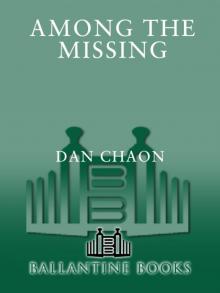 Among the Missing
Among the Missing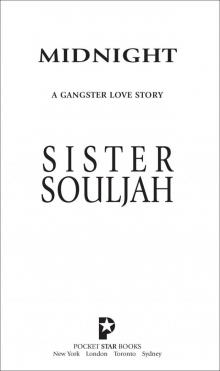 Midnight
Midnight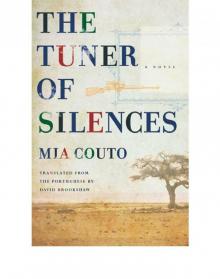 The Tuner of Silences
The Tuner of Silences Nowhere: A Novel
Nowhere: A Novel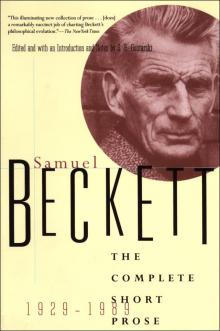 The Complete Short Prose, 1929-1989
The Complete Short Prose, 1929-1989